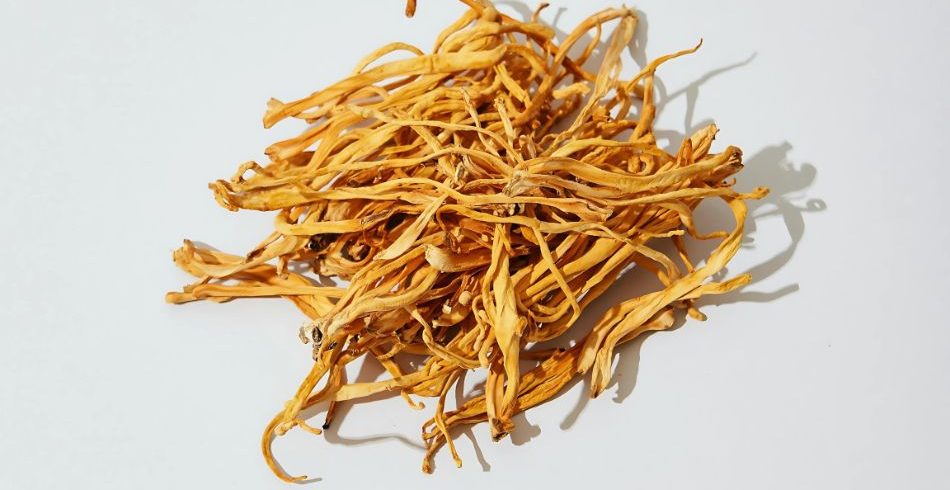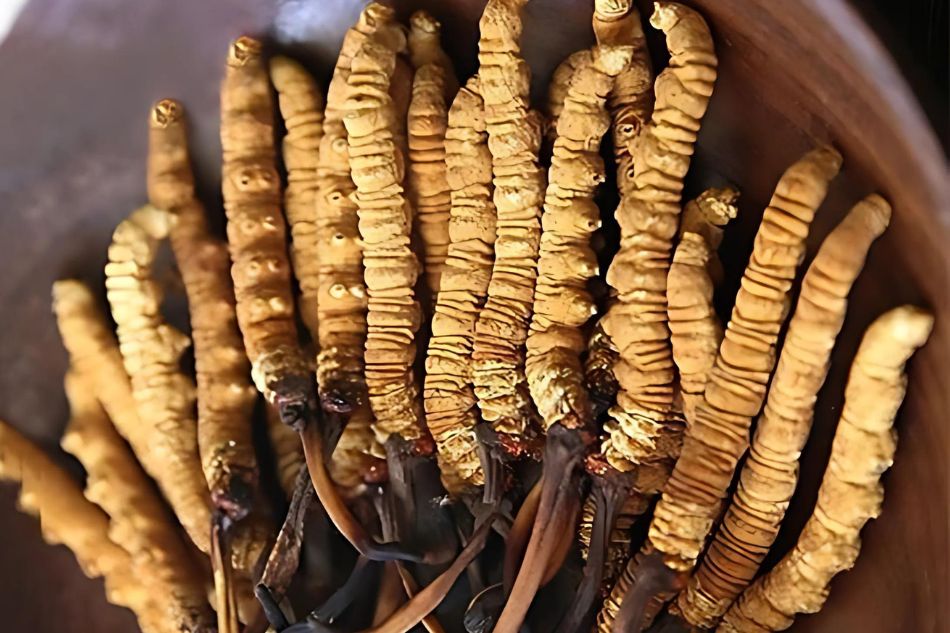
Have you ever wondered how a simple mushroom could hold the key to better health, enhanced performance, and even longer life? In recent years, Cordyceps mushrooms have emerged as a powerhouse in the realm of health supplements. Renowned in Traditional Chinese Medicine for centuries, they present a promising avenue for those keen on promoting longevity and well-being.
Join us as we delve into the potential impacts of these fungi on your health, exercise performance, and aging.
What Are Cordyceps Mushrooms?
Cordyceps is a genus of parasitic fungi that predominantly grows on the larvae of insects. When these fungi infect their hosts, they replace tissue with their own, sprouting long, slender stems that extend beyond the corpse of the host. This unique life cycle has intrigued researchers and health enthusiasts alike due to the various health benefits attributed to these mushrooms.
Among the over 400 known species, Cordyceps sinensis and Cordyceps militaris have gained particular attention in scientific research for their potential health benefits, leading to widespread popularity in supplement form. But what specifically can they do for your health? Let’s explore the active ingredients and six scientific-backed benefits.
The Active Ingredients of Cordyceps
Cordyceps mushrooms have been found to contain a range of bioactive compounds, including cordycepin, exopolysaccharides, and other polysaccharides, that contribute to their medicinal properties. These compounds have been shown to have antitumor, immunomodulatory, antioxidant, and anti-inflammatory effects, among others.
Cordycepin
Cordycepin is a nucleoside analog that has been isolated from Cordyceps sinensis and has been found to have immunoregulatory and antitumor activities. It has been shown to inhibit the growth of various cancer cells, including lung, liver, and colon cancer cells, and to induce apoptosis (programmed cell death) in cancer cells.
Exopolysaccharides
Exopolysaccharides are polysaccharides that are produced by Cordyceps and have been found to have immunomodulatory and antioxidant effects. They have been shown to stimulate the production of cytokines, which are proteins that play a key role in the immune response, and to have anti-inflammatory effects.
Other Polysaccharides
Other polysaccharides found in Cordyceps, such as beta-glucans and mannans, have been found to have immunomodulatory and antioxidant effects. They have been shown to stimulate the production of cytokines and to have anti-inflammatory effects.
Cordyceps mushrooms effects

1. May Boost Exercise Performance
Cordyceps mushrooms may offer substantial benefits for exercise enthusiasts. Research indicates that they may enhance the body’s production of adenosine triphosphate (ATP), a vital molecule for delivering energy to muscles. A study involving 20 healthy older adults showed a remarkable 7% increase in VO2 max—a measure of aerobic fitness—in those taking a synthetic strain of Cordyceps known as CS-4 compared to a placebo .
Another study recorded an 11% increase in VO2 max after participants ingested a Cordyceps blend for three weeks . While trained athletes found less benefit, these findings mark Cordyceps as potentially transformative for regular exercisers seeking to enhance their performance.
2. Anti-Aging Properties
Traditionally, Cordyceps have been used to alleviate fatigue and elevate vitality among the elderly. Studies suggest that these mushrooms contain potent antioxidants that could mitigate cellular damage associated with aging . In animal studies, Cordyceps have increased antioxidants in older mice, resulting in enhanced memory and sexual function. Moreover, they have shown potential in extending lifespan . However, more human-focused research is required to validate these effects.
3. Potential Anti-Tumor Effects
The anti-tumor properties of Cordyceps mushroom are currently a hot topic among health researchers. Test-tube studies indicate that Cordyceps can inhibit the growth of various cancer cells, including those from lung, liver, and colon cancers . Animal studies have further demonstrated anti-tumor effects, particularly on lymphoma and melanoma . While these findings are promising, it’s crucial to remember that they need to be interpreted cautiously, as comparable human studies are lacking.
4. May Help Manage Type 2 Diabetes
Managing diabetes effectively can mitigate many associated health risks. Cordyceps possess a unique sugar component that mimics insulin, potentially aiding in blood sugar regulation . In diabetic mice, these fungi have shown the ability to lower blood sugar levels . Additionally, a review of 22 studies found that Cordyceps could help improve kidney function among those with chronic kidney disease, although more comprehensive research is essential .
5. Possible Benefits for Heart Health
Research surrounding Cordyceps mushroom indicates they might be beneficial for heart health. In China, they are approved for arrhythmia treatment, stemming from studies showing their efficacy in reducing heart injuries and enhancing cholesterol levels in animal models . Notably, Cordyceps may help decrease “bad” LDL cholesterol and triglycerides, both of which are major contributors to heart disease risk . However, solid evidence in human subjects is still needed.
6. May Help Fight Inflammation
Modern health challenges often stem from chronic inflammation. Cordyceps mushroom have been shown to reduce inflammatory proteins when tested on human cells, suggesting they may serve as a potential anti-inflammatory agent . Animal studies demonstrated efficacy in reducing inflammation in airway passages, which can inform future applications for respiratory conditions like asthma . Despite these promising findings, research in humans remains limited.
Safely Incorporating Cordyceps into Your Diet
Despite the promising potential of Cordyceps, it’s vital to approach supplementation with caution. The high cost of naturally sourced C. sinensis means most supplements contain the synthetically cultivated C. CS-4, which is more affordable .
Dosage Guidelines
Due to the limited human research surrounding Cordyceps, there is no standardized dosage, but common recommendations range from 1,000 to 3,000 mg per day . Most individuals tolerate this range well, but always consult with a healthcare provider before beginning any new supplement regimen.
Can Cordyceps be taken at night?
Yes, Cordyceps can be taken at night, but it’s generally recommended to take it in the morning or early afternoon to avoid any potential stimulating effects that may interfere with sleep. Cordyceps can increase energy and alertness, so taking it too close to bedtime may make it difficult to fall asleep.
Safety Considerations
While Cordyceps are generally recognized as safe, mild side effects may occur, including nausea, diarrhea, and allergic reactions . Those with autoimmune conditions should avoid using Cordyceps unless recommended by a healthcare professional .
Conclusion: The Future of Cordyceps Research
The potential health benefits of Cordyceps mushrooms are both exciting and substantial, offering hope for enhanced energy, anti-aging effects, and support against chronic diseases. However, while current research primarily involves animals and test tubes, the scientific community is keenly aware of these fungi’s medicinal potential and is working towards validating effects in humans.
If you’re open to exploring the world of supplements, consider Cordyceps as a part of your healthy living journey. As always, do consult a healthcare provider before adding anything new to your wellness routine.


